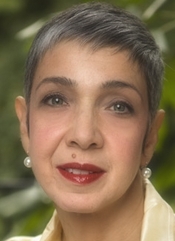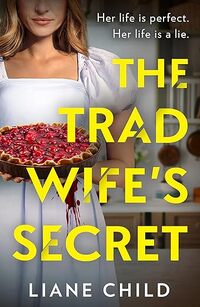Hello Fresh Fiction readers! My name is Yona Zeldis McDonough and I’ll be
writing a new column on Women’s Fiction for the site. I plan to define, describe
and discuss the term, as well as compare it to other similar terms and
categories. I’ll share my pet peeves and fave raves too. I do hope you’ll enjoy
the posts and keep coming back for more. And I also hope you’ll gift me with
your thoughts and insights; I’d love to hear from each and every one of you
about the books and authors that matter to you most.
Just to get acquainted, I’m the author of six novels for adults (lots of kids’
books too, but that’s another story) with a seventh, THE HOUSE ON
PRIMROSE POND, coming out on February 2, 2016. When I first started writing,
I had never heard the term “women’s fiction.” I did know, however, that I
enjoyed novels written by women like Elizabeth
Berg, Anita Shreve, Anne
Tyler, Sue Miller, and Jodi
Picoult, to name just a few. To me, these were juicy, delicious books, big
on plot, crammed with character, and yes, they all seemed to place the lives and
concerns of their female protagonists front and center. So if that was “women’s
fiction,” I wanted to be a part of it.
I began writing novels that first and foremost appealed to me, and dealt with
issues I found important and compelling. Many of these were squarely in the
domestic realm, and had wives, mothers, and grandmothers playing significant
roles. There was also plenty about love and romance, yet women’s fiction
differs slightly from true romance in at least one significant way.
While many novels categorized as women’s fiction can include elements of
romance, romance does not have to be the central or guiding element. Yes, the
protagonist is interested in love, which she may even find along the way. But
she may be dealing with a marriage, kids, divorce, career or a whole host of
other things that clamor for attention and space in her life. In my fourth
novel, BREAKING THE BANK, the protagonist Mia Saul is torn between
two men: nice but dull Fred, who owns a local bar and wants nothing more than to
marry her and settle down, and Patrick, the wildly inappropriate (but also
wildly sexy) guy she meets, of all places, when she has to spend a night in
jail! Yet romance is not central to Mia’s story; she’s too busy dealing with an
ongoing custody battle with her charming but wholly unreliable ex, trying to
find a job, and a rogue ATM that has started giving her money it neither records
nor debits! It’s a kind of gritty urban fairy tale that falls directly into the
women’s fiction category.
When I look back at my own career, I have to say that the term women’s fiction
suits me well and I wear it proudly. As a reader, these are the stories I am
drawn to over and over again; as a writer, these are the stories I want to tell.
In the columns that follow, I’ll be breaking down the term still more, and
discussing such issues as what happens when men write domestic fiction, how a
sense of place defines a story and whether we really do judge a book by its
cover—and why! Stay tuned.

Yona Zeldis McDonough is the author of six novels; her seventh, The House on Primrose
Pond, will be out from New American Library in February, 2016. In addition, she is the editor of
the essay collections The Barbie Chronicles: A Living Doll Turns Forty and All the Available
Light: A Marilyn Monroe Reader. Her short fiction, articles and essays have been published in
anthologies as well as in numerous national magazines and newspapers. She is also the award-
winning author of twenty-six books for children, including the highly acclaimed chapter books,
The Doll Shop Downstairs and The Cats in the Doll Shop. Yona lives in Brooklyn, New York with her
husband, two children and two noisy Pomeranians. Please visit her at or
Website Facebook | Twitter
A compelling novel about one woman’s search for the truth from the author of YOU WERE MEANT
FOR ME.
After suffering a sudden, traumatic loss, historical novelist Susannah Gilmore decides to uproot
her life—and the lives of her two children—and leave their beloved Brooklyn for the little town
of Eastwood, New Hampshire.
While the trio adjusts to their new surroundings, Susannah is captivated by an unexpected find in
her late parents’ home: an unsigned love note addressed to her mother, in handwriting that is
most definitely not her father’s.
Reeling from the thought that she never really knew her mother, Susannah finds mysteries
everywhere she looks: in her daughter’s friendship with an older neighbor, in a charismatic local
man to whom she’s powerfully drawn, and in an eighteenth century crime she’s researching for her
next book. Compelled to dig into her mother’s past, Susannah discovers even more secrets, ones
that surpass any fiction she could ever put to paper...
1 comment posted.


 © 2003-2025 off-the-edge.net
all rights reserved Privacy Policy
© 2003-2025 off-the-edge.net
all rights reserved Privacy Policy